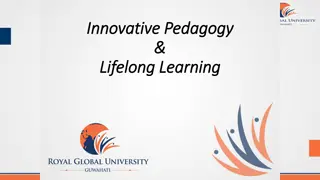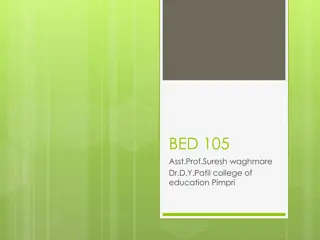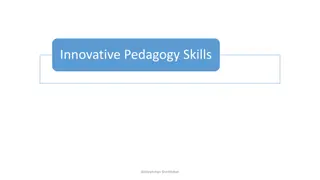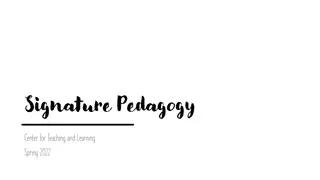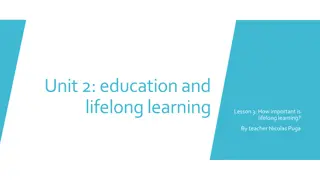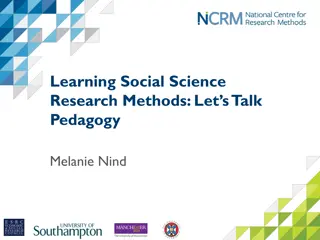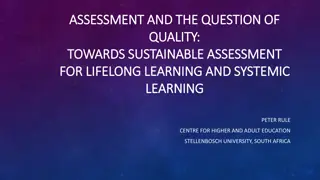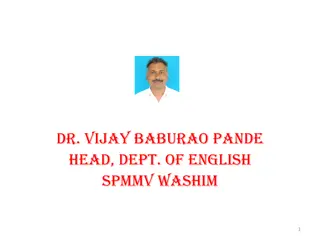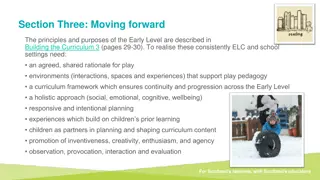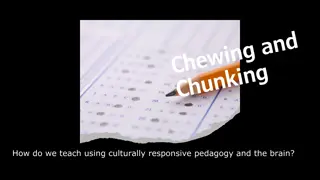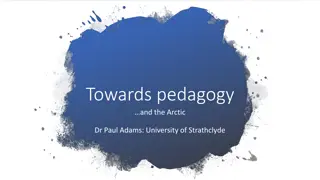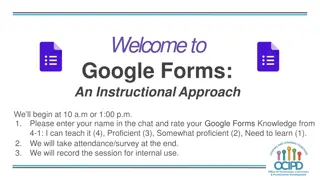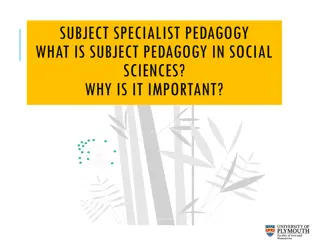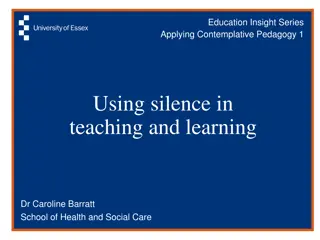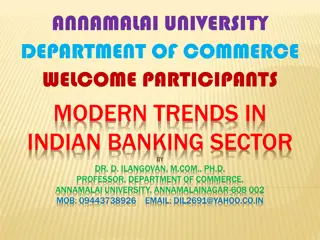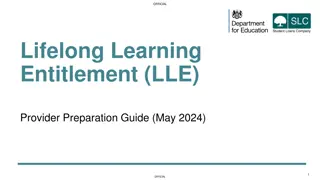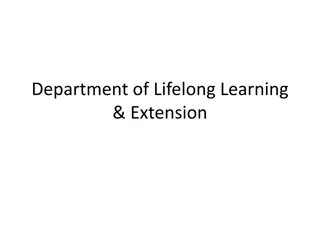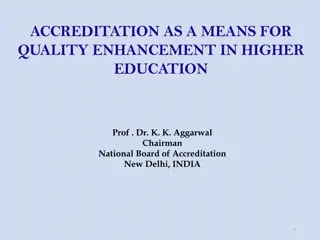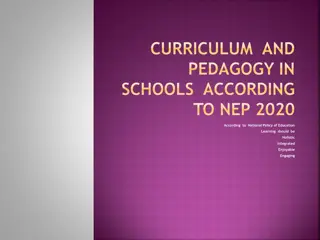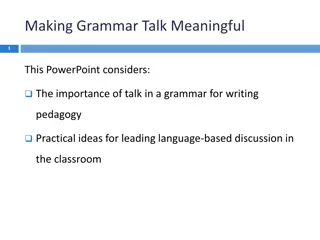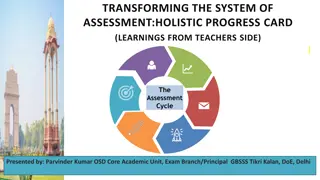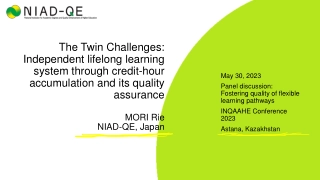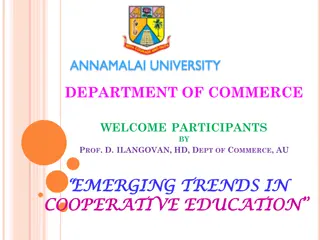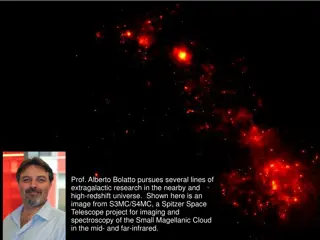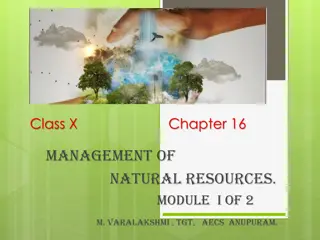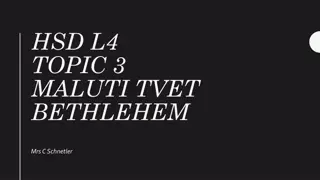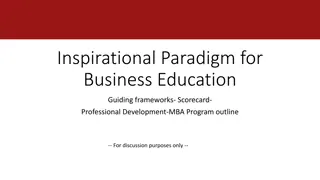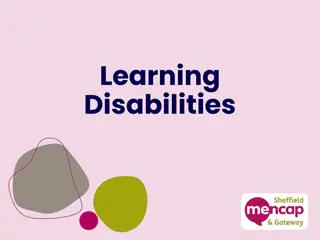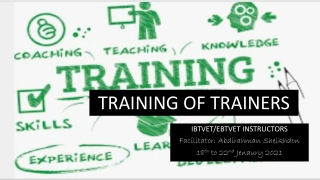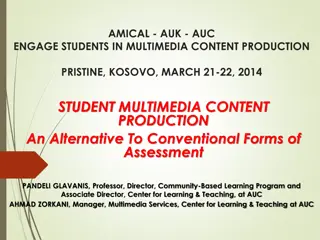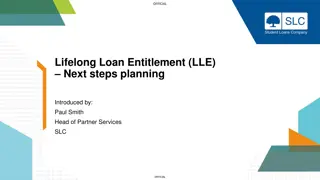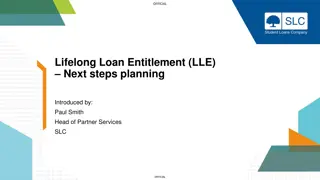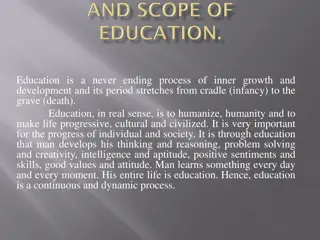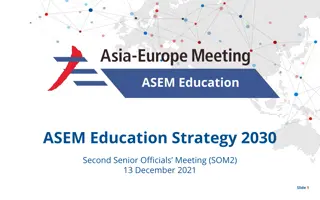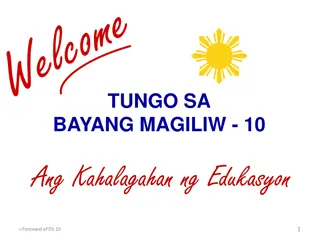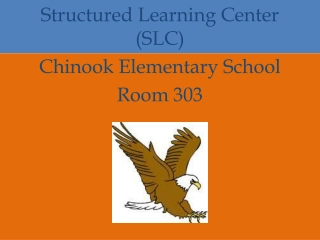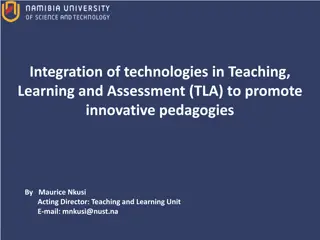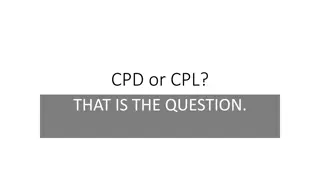Innovative Pedagogy & Lifelong Learning in Education - A Presentation by Prof. Ganga Prasad Prasain
Explore the evolution of pedagogy from ancient Greece to modern times, understanding its role in teaching theory and practice. Discover various types of pedagogy like social, critical, culturally responsive, and Socratic, each aimed at unique educational goals. Learn how pedagogy influences student outcomes such as character development, global citizenship, and communication skills. Join the discussion on redefining education through innovative pedagogy and lifelong learning strategies.
Download Presentation

Please find below an Image/Link to download the presentation.
The content on the website is provided AS IS for your information and personal use only. It may not be sold, licensed, or shared on other websites without obtaining consent from the author. Download presentation by click this link. If you encounter any issues during the download, it is possible that the publisher has removed the file from their server.
E N D
Presentation Transcript
ASSOCIATION OF INDIAN UNIVERSITIES East Zone Vice Chancellors Meet- 2022-23 13-14 December 2022 ICFAI UNIVERSITY, SIKKIM INNOVATIVE PEDAGOGY & LIFELONG LEARNING A Presentation by Prof. Ganga Prasad Prof. Ganga Prasad Prasain Vice Chancellor Vice Chancellor Tripura University Tripura University (A Central University) (A Central University) Tripura, India Tripura, India Prasain
PEDAGOGY Beginning Of Pedagogy: During the ancient period in Greece, the role of the teacher was first introduced, and teaching was considered as an art. Attending school and getting education was something that only the wealthiest could afford for their kids. The role of the teacher or an educator was considered the most important one in the learning process as they gave invaluable knowledge and wisdom to the children. However, the educators weren t the first pedagogues. The rich individuals of the area used slaves to take their children to school. They were considered as the experienced and wise who imparted knowledge to the children. This is how the word pedagogue was created. It is described as the 'leader of children'. They guided the students academically and morally.
PEDAGOGY AS A METHOD Pedagogy is a method of teaching in which teachers teach, both theory and practice. It is a relationship between the culture and techniques of learning. Pedagogy is shaped by educator's teaching beliefs and involves their understanding of culture and different learning styles. It is essential for students to have meaningful classroom relationships in order to build on prior learning. The main aim of pedagogy is to build on previous learning of the students and work on the development of skills and attitudes of the learners. It enables the students to get a thorough understanding of the subject and helps them in applying those learning in their daily lives outside the classroom.
TYPES OF PEDAGOGY 1.Social Pedagogy - It is aimed towards the social development, awareness, and well-being of dimensions:values and moral education. 2.Critical Pedagogy - It aims deconstructing several daily life problems and issues. It encourages the student to dig deeper into things and try to understand their thoughts and beliefs on a certain topic. 3.Culturally Responsive Pedagogy - It aims to address the cultural diversity among students. It differences among the students and increases awareness about cultural differences in school. 4.Socratic Pedagogy - It aims to encourage the students to gain more knowledge from other sources along with what is provided to them. This helps the students to find alternative solutions to the problems. the students. It has two towards comprehending and helps to comprehend cultural
OUTCOMES OF PEDAGOGY Character Character refers to qualities of the individual essential for being personally effective in a complex world including: grit, tenacity, perseverance, resilience, reliability, and honesty. Citizenship Thinking like global citizens, considering global issues based on a deep understanding of diverse values with genuine interest in engaging with others to solve complex problems that impact human and environmental sustainability. Communication Communication entails mastery of three fluencies: digital, writing, and speaking tailored for a range of audiences.
Collaboration Collaboration refers to the capacity to work interdependently and synergistically in teams with strong interpersonal and team related skills including effective management of team dynamics, making substantive decisions together, and learning from and contributing to the learning of others. Creativity Having opportunities, asking the right questions to generate novel ideas, and demonstrating leadership to pursue those ideas into practice. an for economic and social entrepreneurial eye
Critical Thinking Critically evaluating information and arguments, seeing patterns and connections, construction of meaningful knowledge and applying it in the real world. E Squared (Ethical Entrepreneurialism) Permeates the endless cycle of learning in action breaking the distinction between being able to work with the hands, the mind and giving a new, deeper entrepreneurialism . Entrepreneurialism is not just about making money but also being able to identify and resolve complex personal and societal challenges locally and globally. meaning to the term
INNOVATIVE PEDAGOGY Innovation in pedagogy, like any kind of innovation, takes existing ideas, tools or practices and brings them together in new ways to solve problems when current practice is not adequately meeting the needs. The choice of pedagogy has often been made ad hoc or based on whatever a teacher had encountered in their teacher education or their own schooling. But where teachers are supported by high quality teacher education and strong professional infrastructures, they are enabled to make concerted decisions about pedagogy, acting as designers of learning by selecting approaches with a clear sense of their intended impact. Developing and selecting pedagogies involves more than working out what is effective as indicated by impact on diverse measures of learning. Different pedagogies are based on different theories of learning, and these theories entail different views of psychology and philosophy regarding what is most important in learning. The full power of a pedagogy and of pedagogical innovation can only be evaluated in taking into account all the things the pedagogies are trying to achieve.
NEP 2020 Focuses on Innovation and Creativity
It is only when our universities will be able to produce a generation of innovators not initiators, planners not paper pushers, job creators ,not job seekers and original thinkers and not routine followers, only then our university graduates can confidently echo the statement of the great French Philosopher Descartes Cogito, ergo sum or I think, therefore I am and transform our society into a vibrate ,dynamic and living society .As has been well said , I in India should stand for Innovation and not Imitation
Why creative students should be identified?
Creative people are the backbone of progress of any society & development of nation.
THE EXISTING ECONOMIC SCENARIO India has excellent progress in Agriculture Space Atomic Energy, Electronic Information technology Pharmaceuticals, etc India is third economic power in the world Our prosperity depends upon growth of industry Which industry? It is knowledge industry.
REQUIREMENTS OF KNOWLEDGE INDUSTRY Qualified and skilled manpower Computer-based technical knowledge World-class management skill Good quality of education Good quality of education WORLD S DEMOGRAPHY PROJECTIION-2020 Population of India growing fast Western population growing very slowly China s population growth controlled IT industry growing very fast India have 4.7core surplus workforce
But ? It is possible only when Creativity nurtured & Quality of education is improved. What to do for it? What to do for it? The 4.7 crore workforce may dominate the world industry and make India an economic superpower Provided that- They are properly qualified. If not, they will be burden on the Nation.
Growth of higher education the time of independence Universities and 500 Colleges in India At present University and university level institutions Central University State Public University Deemed University State Private University Central Open University State Open University Institution of National Importance At there were 20 760 43 316 122 181 1 13 75
HUMAN CAPITAL FORMATION We talk of Japan s achievements but don t follow them. Japan has no resources except human one and it has developed it properly. Any amount of investment in capital formation will not bring desired result if human resource is not developed We know that India is spending very low in education and health
Promoting of Quality: Focus on Performance Curricular Reform Better human resource management High quality research & Innovation Technology assisted monitoring system Science, Technology Inter-University centre University housed networking centre to provide international quality support.
Issues to be addressed Access: Equality: Quality: Issues and challenges in Relation to Access. Access remains limited and varies across socio- economic groups. . Issues and challenges in relation to Equality and Inclusion: Overcoming Barriers to the Education of Marginalized section
Issues and challenges in Relation to Quality and Excellence. Reforms in the Regulatory Environment Implementing the reforms Agenda Curricular Reforms. Reforms in the Accreditation system and Ratings. Integration of Technology in Teaching Learning and outreach. Enhancing Quality and Excellence in Higher Education: Accreditation Mandatory Attracting quality Faculty and continuous Faculty Development Programmers Evaluation of Teachers by students and peer assessment Networking of universities and colleges Strengthening the E-Learning Systemic Reforms for Good Governance Multi-disciplinary research and innovation programmes Curbing plagiarism
Enhancing Quality and Excellence in Higher Education The Issues Majority of Colleges fail to inculcate quality education Medium of education, Hindi/regional languages Non-availability of quality text books No research orientation at college level Frontier of knowledge be enhanced No Articulation of internationalization of higher education Global platform for knowledge seekers
1. Reform Agenda (Academic, administrative, curricula and pedagogy) Teaching & Learning Discovery and innovation Engagement with social concern 2. Structural and System Reforms Robust Policies Pragmatic Program Good Governance 3. Academic Reform Semester System Grading System Choice-based credit system i Transfer of credits
4. Generating Knowledge Society i Learner perspective ii. Satisfaction of National and International demand iii. Knowledge sharing and participation 5. Preserving the character of a University i. Multi-disciplinary University ii. Mandatory accreditation (1415 accredited out of 31324 colleges and 75 accredited out of 534 universities) 6. Academic Staff College 7. Quality faculty i. Attract good teachers ii. Faculty upgradation
But It is possible only when- Quality of education is improved What to do for it? Change According to Change Be alert for first sign of change Anticipate change when things are going right Always look to the opportunities that change represents Surround yourself with people who are open to change Play to win Respect yourself
Curriculum construction. *Sports *Cultural Activities *Literary Activities *NCC *NSS
Avoid over-emphasizing the textual information.
Use teaching aids properly. .
So, esteemed scholars ! Let us change-ourselves & the environment for quality education for creation of human capital With the confidence that we will bring change Then only Bharat shall be Atmanirbhar in Education.
:SUGGESTION : Barriers to Creativity and innovation must be overcome. Innovating new ways to nurture the creativity of students must be a regular practice at all levels of education. Encourage flexibility ,originality and elaboration in the classroom practice. Students must be provided opportunities to experiment and reflect in all the subject areas. Teacher should be respectful of unusual question. Teacher should be respectful of unusual ideas of children. We have to show children that their ideas have value. We have to provide for periods of non-evaluated practice or learning. Provision of incentives and awards to motivate the teacher to do continuously better.


